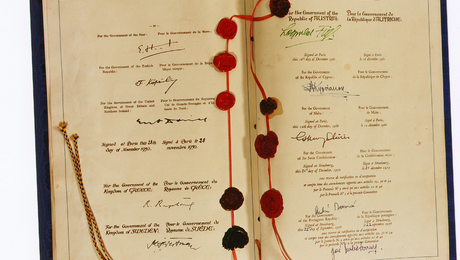Henry Zakumumpa
Thousands of people living with HIV and AIDS in East Africa were given new hope last week (25 April 2012), when a High Court judge in Nairobi ruled that Kenya’s anti counterfeit law is unconstitutional in its interpretation of generic HIV drugs as illegal counterfeits.
A generic drug is an identical copy of a brand name, the latter of which are usually manufactured by pharmaceutical giants. Brand drugs such as those manufactured by Pfizer and Norvatis go for prices tailored to Western markets and thus are unaffordable for the majority of patients in sub Saharan Africa. However, many can afford Indian generics, which cost as little as a tenth of the brand price.
Generic drug manufacturers such as CIPLA of India imitate the exact formulas used in brand antiretrovirals (ARVs) drugs through a process called ‘reverse engineering’. The drugs are understood to be as effective as the brand names.
Justice Mumbi Ngugi ruled that intellectual property rights do not override the right to life and health. She found the definition of a ‘counterfeit’ in the Kenya Anti-Counterfeit Act of 2008 to be too broad leading to generic HIV drugs being bundled together with other counterfeits. Justice Mumbi said this vagueness is posing a grave threat to the right to life and health for thousands of Kenyans who depend on life-saving generic ARVs.
The High Court judge has now instructed the Kenyan parliament to review the Anti Counterfeit Act of 2008 and amend the offending articles, which can lead to arbitrary seizures of generic HIV drugs under the pretext that they are ‘counterfeits’, as happened at a Dutch port last year.
Under common law, a high court ruling in Kenya sets a precedent for countries such as Uganda and it is now thought that human rights activists in Uganda and the rest of East Africa will invoke the ruling in any potential suits.
The news will also comes as a welcome development for Ugandan pharmaceutical companies such as the Quality Chemicals Plant in Luzira, most of whose products are generic drugs
While testifying before a Ugandan parliamentary committee last month, Moses Mulumba, a human rights lawyer and intellectual property rights expert, revealed that the Uganda Counterfeit Bill 2010 regards generic AIDS drugs as ‘counterfeits’ and would render 90 % of HIV drugs in Uganda illegal should the bill be passed by parliament and assented to by President Museveni.
With efforts to deepen East African regional integration taking centre stage, the Kenya High Court ruling becomes even more instructive for Uganda and the rest of members of the East African community (EAC).
“A vast majority of people in Kenya rely on quality generic drugs for their daily survival. Through this important ruling, the High Court of Kenya has upheld a fundamental element of the right to health,” said UNAIDS Executive Director Michel Sidibé.
“This decision will set an important precedent for ensuring access to life-saving drugs around the world.”
“The court has correctly interpreted the Constitution and guaranteed the right to health. This ruling speaks against any ambiguity that serves to undermine access to generic medicines and puts the lives of people before profit”, Patricia Asero, one of the three petitioners, was quoted as saying.
Last week also marked the successful passage of the East Africa HIV/AIDS Prevention and Management Bill 2012 by the East African Legislative Assembly (EALA), a timely milestone as the assembly’s term of office expires in June this year.


